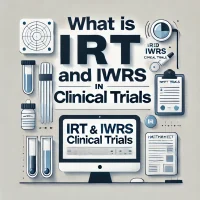Engaging in clinical research by Haltha offers a unique chance to make money while improving novel therapy development and medical understanding. Although financial incentives draw people in a lot, one should take ethical issues of pay under serious thought. The financial advantages of taking part in clinical research will be discussed in this paper, along with pointers for locating ethical prospects and predicted revenue and elements affecting compensation. These clinical trial compensation guidelines will assist you in negotiating the world of clinical trial remuneration, whether your hunt is for extra cash or you wish to support medical research.
What is Clinical Trial Compensation?
Clinical trial remuneration is the reimbursements or rewards given to participants for their participation in a clinical experiment. This pay is meant to cover their time, work, and any hazards related to taking part in the study.
Several factors might greatly affect the clinical trial compensation amount. Among these are:
- Phase of the trial. Because of the possibility for more risk, earlier-phase trials, Phase I and II, often employ healthy participants and may pay more. Usually involving individuals with a particular medical problem, later-phase studies (Phase III and IV) may pay less;
- Type of trial. Furthermore, the length and complexity of the trial affect the degree of compensation. Trials requiring numerous visits, intrusive treatments, or rigorous adherence to protocols may pay more;
- Specific requirements of the trial. Compensation may be determined in part by factors such as travel time, lost work, or certain processes.
It is noteworthy that taking part in a clinical study is not mostly motivated by pay. Contributing to medical research and maybe enhancing the quality of life for others comes first. Still, pay might assist in covering the expenses and hassles related to involvement.
Factors That Affect Compensation for Clinical Trials
Understanding the many elements that could affect the pay you might get helps you to consider your involvement in a clinical study. Compensation for clinical trials is meant to fairly represent the time, work, and any hazards of the research. Analyzing these elements helps you to decide whether trials could be worth your time.
Study Type and Phase
The degree of compensation given in a clinical study is largely influenced by its kind and phase.
- Phase I Trials. The experimental character of the therapies under test makes them typically more risk-bearing. Phase I study participants usually get more remuneration as a consequence of considering the greater possible hazards;
- Phase II Trials. These studies concentrate on assessing a novel treatment’s efficacy. Although still under experimental status, the hazards are usually less than in Phase I studies. Usually, Phase II trial compensation is somewhat modest;
- Phase III Trials. These are extensive studies used to validate the safety and effectiveness of a new therapy. Usually involving more people, they might go for a longer period. Although compensation for Phase III studies is often less than for earlier-phase trials, the extended length of Phase III trials results in total revenues that may be noteworthy.
The phase of the clinical study has a major effect on compensation for clinical trial subjects as per ethical guidelines. Early-phase studies usually pay more because of more risks, whereas later-phase trials may pay less for each visit but might generate large total income because of their length.
Risk Levels
Another important determinant of pay is the degree of risk connected to a clinical study.
- High-risk trials. Usually offering more remuneration to account for the greater risks, trials involving invasive procedures, such as surgeries or repeated blood draws, or those involving potentially dangerous drugs expose participants to;
- Low-risk trials. Generally speaking, trials involving well-known medicines or non-invasive research, such as questionnaires or behavioral studies, offer less pay.
Knowing these elements will let you assess whether clinical studies fit your financial goals and risk tolerance. Considering the kind and phase of the research, as well as the related risk levels, helps you to better negotiate the chances presented in the field of paid clinical research.
How Much Do Medical Trials Pay?
Participating in medical trials may pay quite differently based on the complexity, hazards, and criteria of the study. For basic, short-term research, payments can be as low as $50. For more complicated, riskier trials requiring a substantial time commitment and several visits or intrusive procedures, payments might vary to $10,000. Based on the kind of experiment you are doing, here is a broad expectation:
- Low complexity trials. Often paying between $50 to $300, they might include surveys, observational research, or low-risk temporary trials.
- Moderate complexity trials. Trials involving some degree of intervention, such as blood testing, imaging, or pharmaceutical studies, usually pay between $300 and $2,000.
- High complexity trials. Long-term studies, those needing hospital stays, or trials including novel and unproven medicines might cost $2,000 to $10,000 or more.
It is noteworthy that numerous elements affect these compensation numbers: the length of the research, the degree of invasiveness of the related procedures, and the general participant risk. Furthermore, certain studies might provide access to new medicines or comprehensive health assessments, therefore offering advantages beyond just financial remuneration.
Do You Get Paid During Clinicals?
The particular trial and sponsor rules affect the payment schedules. While some studies pay a flat amount upon completion, others pay at consistent intervals across the research. Shorter-term studies often pay for each visit or operation after that. Payments for longer-term studies could be set as a mix of a final payout and consistent stipends.
What Expenses Are Covered?
Many clinical studies not only pay for participation but also cover certain expenditures to make sure participants are not personally liable for their engagement. These paid-for costs include:
- Transportation. Commonly, notably, if the trial location is not near to the participant, there is reimbursement for travel expenses to and from the trial site.
- Meals. Some studies include lunch allowances or reimbursements, especially if the research calls for participants to remain at the trial location for a long duration.
- Lodging. Housing expenses may be paid for trials requiring overnight stays or those situated distant from the participant’s house. This guarantees participants’ complete dedication to the experiment, free from major personal costs.
Knowing the pay and refund policy would enable potential volunteers to make decisions about which studies might be worth looking at depending on their logistical and financial requirements.
Do Patients Pay for Clinical Trials?
Potential participants in clinical studies are often concerned about the financial ramifications. Commonly asked is, “Do patients pay for clinical trials?” Usually, participants are not supposed to pay any expenses connected to the experiment. Rather, the sponsors pay for these costs, therefore relieving the financial load of the volunteers. The expenses for participants and reimbursement rules connected to clinical trials will be discussed in this manual.
Costs for Participants
The sponsor, often a research facility or a pharmaceutical company, absorbs the cost of the clinical study. This guarantees the absence of out-of-pocket expenses for participants. The aim is to encourage varied involvement and reduce any financial obstacles that could discourage people from registering for a trial.
Reimbursement Policies
Although participants do not pay for trial-related expenditures, sometimes they may have personal expenses such as food, housing if the research calls for overnight stays, or transportation to and from the trial location. Most sponsors in these situations have reimbursement mechanisms in place to pay these extra expenses. This guarantees that participants in the research are not involved out-of-pocket.
“Participants in clinical trials should never be financially responsible for costs associated with the study,” says a medical ethics board spokesman. Reimbursing participants for expenditures guarantees that there are no financial constraints on involvement and preserves the ethical integrity of the study.”
Clinical trials seek to remove any financial obstacles for participants by paying all trial-related fees and providing refunds for personal expenses, thereby promoting an inclusive and fair environment for medical research.
How to Maximize Earnings from Paid Clinical Studies
Participating in sponsored clinical studies presents an excellent opportunity to earn substantial income, but maximizing your revenue requires strategic preparation and proactive measures. Knowing how to identify high-paying trials can significantly boost your earning potential and improve your chances of selection. The best way to find the highest-paying clinical studies is through Haltha. This guide will discuss actionable methods to enhance your results in clinical research.
Research and Apply for High-Paying Trials
To maximize your earnings, use Haltha’s services to find and apply for high-paying clinical studies effectively:
- Utilize Haltha’s Clinical Trial Database. Visit Haltha’s website to search for available studies with detailed information on pay scales and eligibility. Prioritize trials offering the highest compensation using Haltha’s filtering options;
- Engage with Local Research Hospitals through Haltha. Haltha helps you establish connections with local research hospitals, which often run high-paying trials. Receive updates on local clinical research opportunities through Haltha’s network;
- Direct Applications via Pharmaceutical Companies. Find and apply for studies directly through pharmaceutical companies’ research pages linked by Haltha. Access comprehensive details about each trial, including compensation, eligibility, and potential risks.
Repeat Participation
Participating in clinical trials more than once might sometimes improve your eligibility for highly paid-future research. Experienced subjects who grasp the study procedure are highly valued by research teams. Returning participants also could have a better chance of getting let into trials with competitive pay if they have shown dependability and dedication earlier.
Tips for Increasing Your Chances
Think about the following to raise your chances of getting selected for highly paid clinical studies:
- Right medical history. Make sure your medical history fits the requirements of the research. Openness regarding your health might increase your eligibility;
- Demographic fit. Many research call for volunteers from certain categories based on age, gender, or ethnicity. Matching the target audience raises your possibilities of choice;
- Geographic location. Being close to the trial location helps you to choose better as it makes visits and follow-ups easier.
Your search will be much enhanced and your chances of selection will be much increased by using Haltha, the premier database for locating high-paying trials and offering great assistance. Early action and use of Haltha’s services will help you optimize your revenue from sponsored research and identify rich clinical trials.
Common Questions About Clinical Trial Compensation
How Much Do Medical Trials Pay?
Medical trials’ complexity, dangers, and needs will all affect their compensation somewhat greatly. Simple, low-risk studies pay about $50. High-risk, long-term trials pay either $10,000 or more. Compensation rates also depend on elements like the trial phase and participation length.
Who Pays for Clinical Trials?
Usually, participants in clinical trials are not obliged to cover any expenses related to the research. Rather, the sponsoring firm, which may be a government agency, a pharmaceutical corporation, or a non-profit organization, covers all trial expenditures, including medical procedures, testing, and drugs.
How Are Payments Determined in Clinical Trials?
Several elements define payments in clinical trials: the kind of research, the degree of risk involved, the length of participation, and the particular procedures needed. Compensation rates offered by sponsors can depend on the intricacy of the study and the time commitment required of the participants.
Can I Earn a Living Participating in Clinical Trials?
Although taking part in many clinical trials might result in a sizable payout, it is not a consistent source of money. Furthermore, the highly stringent eligibility requirements for clinical studies make it difficult to regularly locate appropriate ones to join in.
Is Clinical Trial Compensation Taxable?
The IRS treats payments from clinical studies in many circumstances as taxable income. Participants should mention any income on their tax filings. Keeping thorough records of paid compensation is important, and a tax expert should be consulted for direction on how to properly document this income.
Conclusion
One practical approach to making additional money while helping medical research and the creation of novel therapies is by volunteering in clinical trials. However, participant safety and ethical policies must always come first.
Potential volunteers should extensively investigate their alternatives before committing to a study. Making a wise choice requires weighing the benefits and drawbacks of any study, understanding the pay scale, and considering any possible health hazards.
For those looking for the best solution, Haltha stands out as an ideal option. Haltha provides comprehensive information about clinical trials, helping volunteers make informed decisions. The platform prioritizes participant safety and ethical standards, ensuring volunteers can optimize their profits while maintaining their health and well-being throughout the procedure. By choosing Haltha, volunteers can confidently navigate the complexities of clinical studies and contribute to the advancement of medical research.




